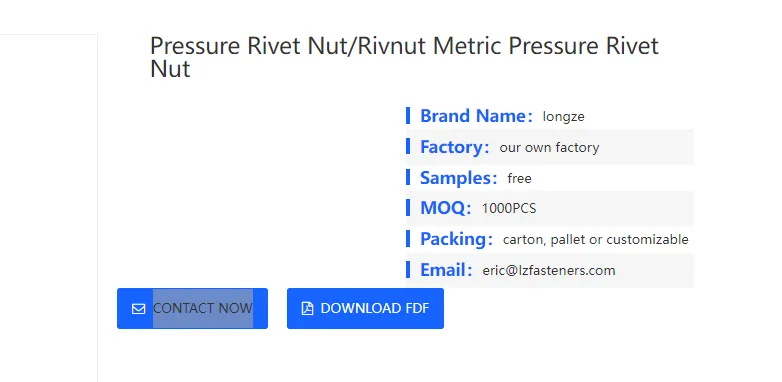

Self-tapping Screws Designed Specifically for Galvanized Steel Applications and Installation Techniques
নভে. . 10, 2024 03:37 Back to list
Self-tapping Screws Designed Specifically for Galvanized Steel Applications and Installation Techniques
Self-Tapping Screws for Galvanized Steel A Comprehensive Guide
In the realm of construction and manufacturing, the choice of fasteners is pivotal, especially when working with materials like galvanized steel. Among the myriad options available, self-tapping screws stand out as formidable tools for ensuring efficient assembly and durability. This article delves into the specifics of self-tapping screws, particularly their application in galvanized steel, examining their advantages, types, and best practices.
Understanding Self-Tapping Screws
Self-tapping screws are designed to create their own hole as they are driven into materials, eliminating the need for pre-drilling. This feature significantly streamlines the assembly process, saving time and labor costs. The screw's tip is engineered to cut through the material, while its threads grip securely into the substrate, establishing a strong and stable connection.
Why Use Self-Tapping Screws with Galvanized Steel?
Galvanized steel is known for its corrosion resistance, making it an ideal choice for applications exposed to moisture or harsh environments. The zinc coating on galvanized steel protects it from rusting, which is essential for maintaining the structural integrity of any construction or manufacturing project. However, fastening galvanized steel requires special consideration due to its unique properties.
Self-tapping screws provide several advantages when working with galvanized steel
1. Efficiency The self-drilling nature of these screws allows for quick installation, particularly in contexts where speed is crucial, such as construction sites. Their ability to tap into the steel without pre-drilling makes them an effective choice for both professionals and DIY enthusiasts.
2. Strength Many self-tapping screws are engineered to provide strong holding power, which is vital for the durability of the assembly. Their design enables them to create stress-resistant joints, essential for load-bearing applications.
3. Versatility Self-tapping screws come in various designs and sizes, allowing for customization based on specific project requirements. From thin sheets of galvanized steel to thicker components, there are self-tapping screws suited for every need.
Types of Self-Tapping Screws
When selecting self-tapping screws for galvanized steel, it’s essential to understand the different types available
self tapping screws for galvanized steel

1. Thread-Forming Screws These screws do not cut material but rather push it aside to form threads. They are ideal for softer materials and can be used with galvanized steel if the thickness is appropriate.
2. Thread-Cutting Screws Often used in thicker materials, these screws are designed to cut their way into the substrate. They are particularly effective for galvanized steel applications, as they provide a firmer grip.
3. Self-Drilling Screws Sometimes referred to as Tek screws, these come with a built-in drill point that allows them to penetrate materials without needing pilot holes. They are highly efficient for use in galvanized steel and are commonly used in roofing and siding applications.
Best Practices for Using Self-Tapping Screws with Galvanized Steel
To ensure the best results when using self-tapping screws with galvanized steel, follow these guidelines
1. Choosing the Right Screw Select a screw that matches the thickness and type of galvanized steel you are working with. For robust applications, consider heavier-duty screws.
2. Proper Torque It's crucial to not over-tighten the screws, as this can strip the threads and compromise the joint. Using a torque wrench can help achieve the right tightness.
3. Alignment Ensure that your materials are properly aligned before driving in screws. Misalignment can lead to weak joints and project failure.
4. Corrosion Resistance While galvanized screws provide good protection against corrosion, consider additional coatings like zinc plating for environments with extreme moisture.
5. Pilot Holes for Larger Screws For heavier-duty applications, pre-drilling pilot holes can help with the screw's alignment and ease insertion without damaging the material.
Conclusion
Self-tapping screws are invaluable tools for working with galvanized steel, offering efficiency, strength, and versatility. By understanding the different types of self-tapping screws and adhering to best practices, builders and manufacturers can ensure that their projects are durable and reliable. As construction methods continue to evolve, the role of self-tapping screws remains crucial in creating strong and lasting connections in various applications.
Latest news
-
Premium Fasteners Manufacturer | AI-Driven Solutions
NewsAug.01,2025
-
Hot Dip Galvanized Bolts - Hebei Longze | High Strength, Corrosion Resistance
NewsAug.01,2025
-
High-Strength Hot Dip Galvanized Bolts - LongZe | Corrosion Resistance, Custom Sizes
NewsAug.01,2025
-
Best Self Tapping Screws for Drywall - Fast & Secure Installation
NewsJul.31,2025
-
High-Strength Hot Dip Galvanized Bolts-Hebei Longze|Corrosion Resistance&Customization
NewsJul.31,2025
-
Hot Dip Galvanized Bolts-Hebei Longze Metal Products|Corrosion Resistance&High Strength
NewsJul.31,2025

